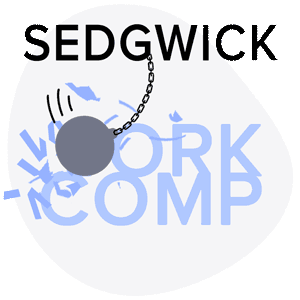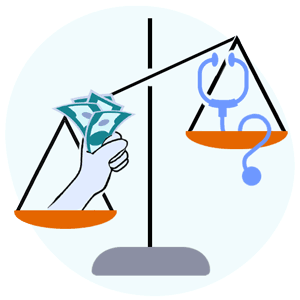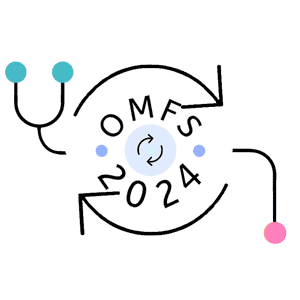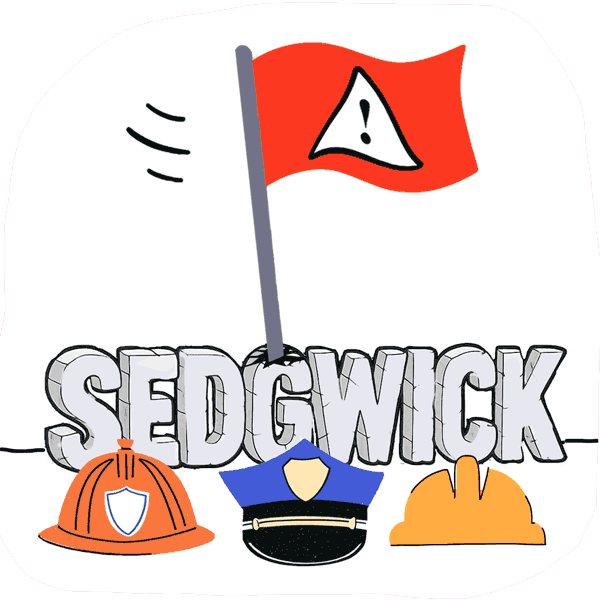Sedgwick: 49% of Appeals Incorrectly Denied
.gif)
Sedgwick Claims Management Services, Inc. is notorious for failing to respond compliantly to California providers’ bills for treating injured workers. But the Third-Party Administrator (TPA) is even worse at responding to Second Review appeals providers submit to dispute Sedgwick’s improper denials and payment reductions.
When a claims administrator improperly denies or adjusts payment, California law requires the provider to submit a Second Review appeal within 90 days to allow the claims administrator to rectify their error.
According to our data, between 2021 and 2023 Sedgwick denied payment for 41,218 compliant Second Review appeals daisyBill providers sent to Sedgwick. Of those, Sedgwick erroneously denied 20,294 as “duplicates” of the original bills.
Yes, almost half (49%, to be precise) of Sedgwick’s appeal denials cited the laughable notion that the appeals were simply copies of original bills that providers submitted in error. (We explain below why this is so laughable). By comparison, Zurich Insurance North America was a distant second, with 15% of its Second Review appeal denials citing “duplicate bill.”
The data does not lie. Sedgwick incorrectly denied 20,294 appeals as duplicate bills, either intentionally or unintentionally — and we’re not sure which is worse.
Sedgwick: A History of Improper Second Review Denials
California workers’ comp law and regulations require Sedgwick to respond to a Second Review appeal with a “final written determination on each of the items or amounts in dispute.” Instead, at a mind-boggling rate, Sedgwick simply denies these appeals as duplicate bills.
Failing to compliantly respond to Second Review appeals is nothing new for Sedgwick. We pointed out their unfortunate habit of labeling perfectly compliant appeals as “duplicates” in 2019, again in 2021, and again in 2022.
In June 2022, daisyBill submitted 4,930 Audit Complaints to the California Division of Workers’ Compensation (DWC) detailing Sedgwick’s Second Review appeal violations. Given Sedgwick’s continued strategy of failing to properly process Second Review appeals, we must assume that the DWC promptly filed the Audit Complaints under “Do Absolutely Nothing About This.”
For the last three years (2021 - 2023), the data below shows the top 10 California claims administrators by count of original bills received from providers, data on Second Review appeals, and the rate at which these claims administrators denied the appeals as duplicate bills.
Clearly, with a 49% rate of improperly denying appeals as duplicates, Sedgwick outperforms all other claims administrators in non-compliance.
Bills Submitted in 2021-2023 to Claims Administrator |
Original Bill Count |
Second Review Appeal Count |
Second Review % |
Second Review Denial Count |
Second Review Denied as Duplicate Count |
Second Review Denied as Duplicate % of Second Review Denial Count |
Sedgwick Claims Management Services, Inc. |
864,115 |
62,548 |
7% |
41,218 |
20,294 |
49% |
State Compensation Insurance Fund (CA) |
351,786 |
35,487 |
10% |
27,740 |
1,321 |
5% |
Gallagher Bassett Services Inc. |
304,847 |
40,081 |
13% |
27,016 |
22 |
0% |
Liberty Mutual Insurance |
161,071 |
11,250 |
7% |
5,628 |
2 |
0% |
Intercare Holdings Insurance Services, Inc. |
155,562 |
9,751 |
6% |
6,348 |
8 |
0% |
CorVel |
151,992 |
16,011 |
11% |
10,889 |
462 |
4% |
Berkshire Hathaway Homestate Companies |
142,317 |
6,298 |
4% |
3,001 |
38 |
1% |
Zurich Insurance North America |
135,262 |
17,399 |
13% |
8,962 |
1,380 |
15% |
ESIS, Inc. |
120,525 |
4,948 |
4% |
1,502 |
10 |
1% |
Travelers |
119,254 |
3,623 |
3% |
3,033 |
0 |
0% |
Totals |
2,506,731 |
207,396 |
8% |
135,337 |
23,537 |
17% |
As for the 49% of appeals Sedgwick improperly denied as “duplicates,” the providers’ only recourse is to request Independent Bill Review (IBR) — which the DWC is unlikely to conduct timely, and which requires further expenditure of practice resources (including the $180 IBR filing fee which the provider is unlikely ever to see reimbursed even if the provider prevails).
Bear in mind that when providers submit Second Review appeals through daisyBill:
- The appeal is submitted using DWC Form SBR-1, which is only used for Second Review appeals and never for original bills.
- The bill itself, per DWC instructions, includes code ‘BGW3’ in box 10d of the CMS-1500 billing form to indicate a Second Review appeal.
- Code 7 for “Replacement of prior claim (bill)” is entered in box 22 of the CMS-1500, along with the bill’s original reference number assigned by the claims administrator, again to indicate an appeal per DWC instructions.
- The word RECONSIDERATION! is entered in Box 19 of the CMS-1500 for “Additional Claim Information” — literally in all caps with an exclamation point.
Somehow, despite all this, Sedgwick still manages to mistake half of its denied appeals for “duplicates.” In a related story, our credulity is currently on indefinite leave due to excess strain.
This is the current state of California workers’ comp:
- A claims administrator consistently exhibits high rates of non-compliance with payment laws and regulations over several years, costing providers inestimably in time and practice resources.
- The non-compliance is well-documented and formally reported to the DWC.
- The claims administrator continues the non-compliance.
California workers’ comp has laws, regulations, and rules regarding how providers bill; if the provider is non-compliant, Sedgwick keeps the provider’s reimbursement. California workers’ comp also has laws, regulations, and rules regarding how claims administrators pay. If the claims administrator is non-compliant…it’s business as usual.
daisyBill makes treating injured workers easier, faster, and less costly. Get a free demonstration below.
SCHEDULE DEMO
DaisyBill provides content as an insightful service to its readers and clients. It does not offer legal advice and cannot guarantee the accuracy or suitability of its content for a particular purpose.
.gif)

.gif)

.gif)


It's worth noting that we had at least one request for IBR denied based on an EOR falsely denying the bill as a duplicate. Maximus stated that the bill was not re-reviewed, and, therefore, ineligible for IBR. The only option, then, is to incur legal fees to escalate (which ultimately incurs legal fees for Sedgwick!)
One of Sedgwick's many SBR issues, but arguably the primary issue, is that bill review requires claims adjuster to mark their internal cover sheet in a very specific way in order for the second review to be processed as a reconsideration. In general, adjusters must check mark "reconsideration" and then, based on payor, they need to make specific, additional notes on the cover sheet or bill review will simply disregard the provider's SBR-1 request and continue to reject the bill as a duplicate. Sedgwick, though, places the burden of communication squarely on the provider to relay messages between the call center and claims about which notes need to be included on their internal cover sheet. Occasionally, even when the adjuster follows these instructions to the letter, bill review will still decline to re-process the bill because the claim is denied. We have had to receive "manual payments" without EORs because the adjuster is unable to crack the code to getting the bill compliantly re-reviewed.
I was told by senior management at Sedgwick (Bill review department) that the employer dictates how the SBR is processed. This was in 2021.